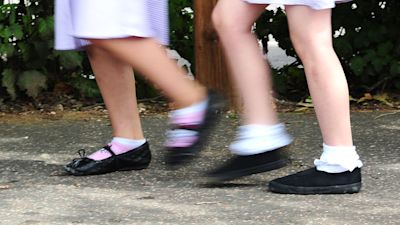New figures show North East has highest rates of child poverty among key worker families

New figures show the North East has the highest rate of child poverty in key worker families in the UK.
Research shows that two in five key worker households in the North East have children living in poverty.
The number of North East kids growing up in poverty in key worker households has increased by 18,000 over the past two years to 70,000 in 2022.
This is an increase of 34%.
The Trades Union Congress (TUC) says that child poverty rates among key worker households are likely to get worse.
The union body says another of year of pay cuts for key workers in the public sector, announced by ministers, will have a devastating impact on frontline workers.
TUC Regional Secretary Liz Blackshaw said: “Our key workers got us through the pandemic. The very least this great workforce deserve is to be able to provide for their families.
“But this government continues to lock working households into poverty and ministers’ provocative decisions to hold down pay are just exacerbating widespread hardship across our region.
“After the longest wage squeeze in 200 years we urgently need to get more money in the pockets of working families and reduce the increasing need for food banks and other forms of crisis and short-term support.
“These demands are simply to give people the resources to get through this cost of living crisis and inject much-needed spending into our economy.”
The TUC have called on the Government to raise minimum wage, ensure fair pay that meets the cost of living, ensure fair wage for outsourced workers, to raise universal credit to 80% of the living wage, increase benefit payments to children and remove the two-child limit within social security.
Northumbria Police and Crime Commissioner Kim McGuinness said: “Our key workers saved this country during the pandemic and they deserve to see that work reflected in their pay packets. They often served at great personal risk, with police officers and staff routinely exposed to covid in order to keep us safe.
“It is shameful that key workers in one of the richest countries in the world are being forced into poverty by a Government that simply does not value public service. They have gone from working on the front line to being on the breadline.
“As the cost of living crisis gets worse we’ve seen strike action across the region as workers feel they are left with no option but industrial action in the fight for fair pay. The Government needs to act now to show it is prepared to back the workers that keep this country going.”
Chair of the North East Child Poverty Commission Anna Turley said: “Over the last few years of the pandemic our key workers have kept this country going - caring for the sick, delivering babies and ensuring we all had food on our tables.
“That any child of a key worker is growing up in poverty shows the system is broken, but yet again it is children in the North East suffering the most from low pay and disadvantage.
“This must be a priority for the government so the children of key workers can have the start in life they deserve.”
In response to being asked what they are doing to tackle the issue, a Government spokesperson said: “Latest figures show there were 200,000 fewer children in absolute poverty after housing costs compared to 2019/20.
"But we recognise people are struggling with rising prices which is why we are protecting millions of the most vulnerable families with at least £1,200 of direct payments, starting with the £326 cost of living payment, which has already been issued to more than seven million low income households.
“We’re also making work pay. We’re saving the typical employee over £330 a year through a tax cut, have boosted the National Living Wage to £9.50, the largest ever increase since its introduction in 2016 and we’re allowing people on Universal Credit to keep on average, £1,000 more of what they earn, while all households will receive £400 energy payments.
“Last month we announced the largest public sector pay increases in nearly twenty years, reflecting the vital contributions public sector workers make to our country. Awards for many workforces are targeted, with the lowest paid NHS workers, police officers and new teachers receiving around 9% pay boosts."